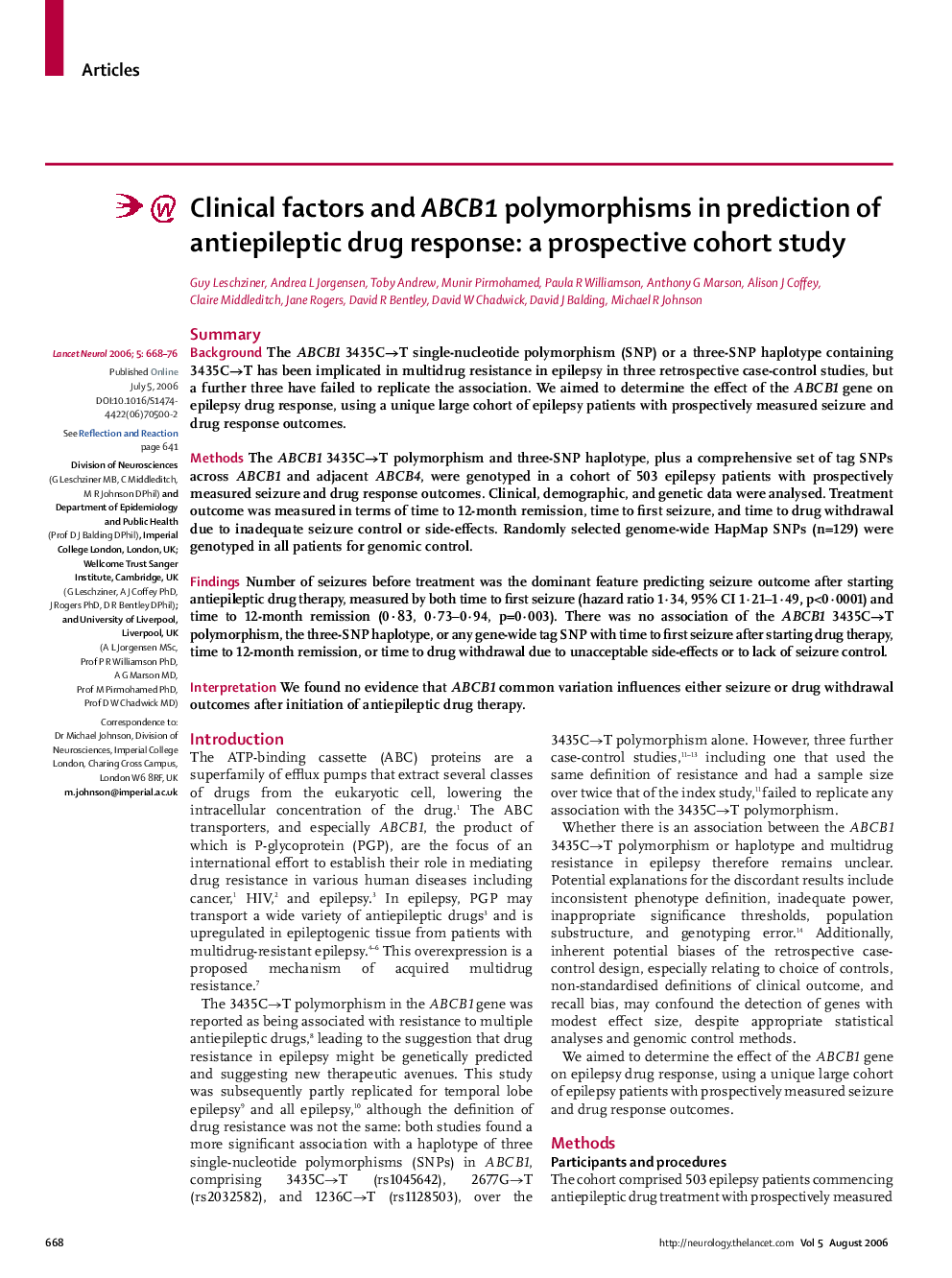| Article ID | Journal | Published Year | Pages | File Type |
|---|---|---|---|---|
| 3067603 | The Lancet Neurology | 2006 | 9 Pages |
SummaryBackgroundThe ABCB1 3435C→T single-nucleotide polymorphism (SNP) or a three-SNP haplotype containing 3435C→T has been implicated in multidrug resistance in epilepsy in three retrospective case-control studies, but a further three have failed to replicate the association. We aimed to determine the effect of the ABCB1 gene on epilepsy drug response, using a unique large cohort of epilepsy patients with prospectively measured seizure and drug response outcomes.MethodsThe ABCB1 3435C→T polymorphism and three-SNP haplotype, plus a comprehensive set of tag SNPs across ABCB1 and adjacent ABCB4, were genotyped in a cohort of 503 epilepsy patients with prospectively measured seizure and drug response outcomes. Clinical, demographic, and genetic data were analysed. Treatment outcome was measured in terms of time to 12-month remission, time to first seizure, and time to drug withdrawal due to inadequate seizure control or side-effects. Randomly selected genome-wide HapMap SNPs (n=129) were genotyped in all patients for genomic control.FindingsNumber of seizures before treatment was the dominant feature predicting seizure outcome after starting antiepileptic drug therapy, measured by both time to first seizure (hazard ratio 1·34, 95% CI 1·21–1·49, p<0·0001) and time to 12-month remission (0·83, 0·73–0·94, p=0·003). There was no association of the ABCB1 3435C→T polymorphism, the three-SNP haplotype, or any gene-wide tag SNP with time to first seizure after starting drug therapy, time to 12-month remission, or time to drug withdrawal due to unacceptable side-effects or to lack of seizure control.InterpretationWe found no evidence that ABCB1 common variation influences either seizure or drug withdrawal outcomes after initiation of antiepileptic drug therapy.
